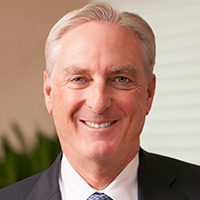How to Create a Pathway to Better Patient Care – Top 3 ways to transform your health care organization
As CEO of a major health system, I’ve seen value-based care turn the axiom “you get what you pay for” on its head.
If you would have asked me whether that adage applied to patient care before I joined Virginia Mason, I would have certainly agreed. But I would’ve been wrong.
Here are three of the most surprising lessons I’ve discovered about the real value of sustainable transformation and how you can apply them to your own health system.
1. Eliminating waste means improved patient care and reduced costs
Virginia Mason’s journey to value-based care has proven this counterintuitive truth: the pathway to safer patient care can be the same pathway to lower costs.
When health care organizations eliminate waste from processes, we find that patient care actually improves.
It starts with empowering frontline staff to identify defects that impact how they deliver patient care. When team members can eliminate these wasteful processes from their day-to-day work, they’re better able to focus on — and address in the moment — patients’ needs.
This process of continuous learning improves the patient experience, whether we’re delivering sick care at the most critical times in a patient’s life or well care at regular intervals to ensure they stay healthy. By finding and eliminating waste at every step, we can reduce the cost of care — no matter the type.
2. Disrupting the status quo adds value to your most complex work
Spinal surgery is significantly overutilized nationwide. Unfortunately, we also see high morbidity and complication rates associated with these procedures.
When our spinal surgery team, led by Rajiv Sethi, MD, dug deeply into all the processes involved in the care of a spine patient, they were able to identify specific wastes and defects that increased patient risks and complications.
More importantly, our team used this information to better identify appropriate candidates for surgery. The results of their published work are profound. By focusing on appropriateness of care, the team has dramatically reduced complication rates and achieved a nearly three-fold reduction in unanticipated returns to the operating room.
Thanks to its groundbreaking work, our spine team is cited nationally and internationally as a model for appropriateness and patient safety. And we’re proud to regularly host clinical and research fellows and visiting professors from leading academic medical centers to help teach and continually improve our patient-focused philosophy.
3. Delivering the right care at the right time promotes greater profitability
At Virginia Mason, we see a large volume of complex spinal surgery referrals — but that doesn’t mean we take them all. Because of our spine team’s innovative approach in identifying appropriate candidates for surgery, we now refer 58 percent of patients to other specialists who can provide the correct care without surgery. This work has been peer-reviewed and published in The Spine Journal, and our team is continuing to study it further.
For example, we don’t operate if a patient’s medical or psychological comorbidities will put them at risk. Instead, we optimize patients medically and psychologically and focus on treating the person, not just the X-ray. We may lose the revenue of a surgical case, but we put the patient’s well-being first.
So, how does this shift to fewer procedures translate into increased revenue?
We work hard to maintain our patient-focused approach, so community providers and employers choose us first because they trust us to act in the patient’s best interest rather than perform surgery on everyone we see. As a result, we’re referred more patients, which promotes our profitability without increasing surgical procedures.






